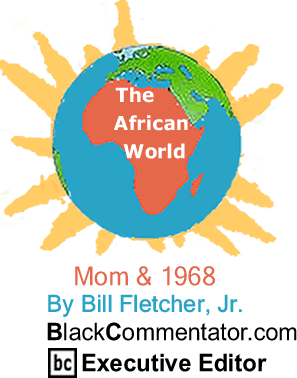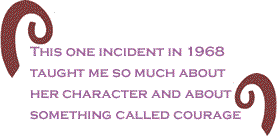
|
||||||||||||||||||||||
 |
||||||||||||||||||||||
 |
||||||||||||||||||||||
 |
||||||||||||||||||||||
 |
||||||||||||||||||||||
 |
||||||||||||||||||||||
 |
| The current issue is always free to everyone |
|
|
 |
| With
the 40th anniversary of the events of 1968, one that will need
in depth examination is the 1968 teacher's strike in The NY teacher's strike was a reactionary strike against an effort in the African American and Puerto Rican communities towards what was called "community control of schools." The teacher's union - the United Federation of Teachers (an affiliate of the American Federation of Teachers) - led by the late Albert Shanker, took the position that community control would undermine what the teacher's unions had won in the past and would threaten seniority. Neither Shanker nor anyone else in the UFT leadership were particularly concerned about the demand, arising from communities of color, for more teachers of color as well as curricula that spoke to the needs of our respective communities. When
the UFT called the strike my mother, an elementary school teacher
in My mother crossed the picket lines. With moral support from my father, she took a step that I would bet she had never anticipated taking. She crossed a line where friends and co-workers were on the other side, but she stood by her principles. She was not going to support a reactionary strike and she felt that this was just that.
The
stand that she took in 1968 is impressed in my memory. On Mother's Day there are so many reasons for me to be grateful for my own mom. This one incident in 1968, however, taught me so much about her character and about something called courage. Bill Fletcher, Jr. is Executive Editor of Black Commentator.com. He is also a Senior Scholar with the Institute for Policy Studies and the immediate past president of TransAfrica Forum. Click here to contact Mr. Fletcher. |
Your comments are always welcome. e-Mail
re-print notice
If you send us an e-Mail message we may publish all or part of it, unless you tell us it is not for publication. You may also request that we withhold your name. Thank you very much for your readership. |
|
| May
8, 2008 Issue 276 |
|
| Executive Editor: Bill Fletcher, Jr. |
| Managing
Editor: |
| Publisher: Peter Gamble |
| Est. April 5, 2002 |
| Printer Friendly Version in resizeable plain text format format or pdf format. |
 |
 |
 |
| |
| |






















 My
mother is very outgoing and very smart, but often pooh-poohs
both what she knows as well as her own leadership. Yet she and
my father are both strongly pro-social justice, a commitment
and attitude that they instilled in both me and my sister. My
mother is always outraged at the slightest injustice and is
in constant fear for the future of humanity, always wanting
to figure out how to do more that supports progressive causes.
My
mother is very outgoing and very smart, but often pooh-poohs
both what she knows as well as her own leadership. Yet she and
my father are both strongly pro-social justice, a commitment
and attitude that they instilled in both me and my sister. My
mother is always outraged at the slightest injustice and is
in constant fear for the future of humanity, always wanting
to figure out how to do more that supports progressive causes.








